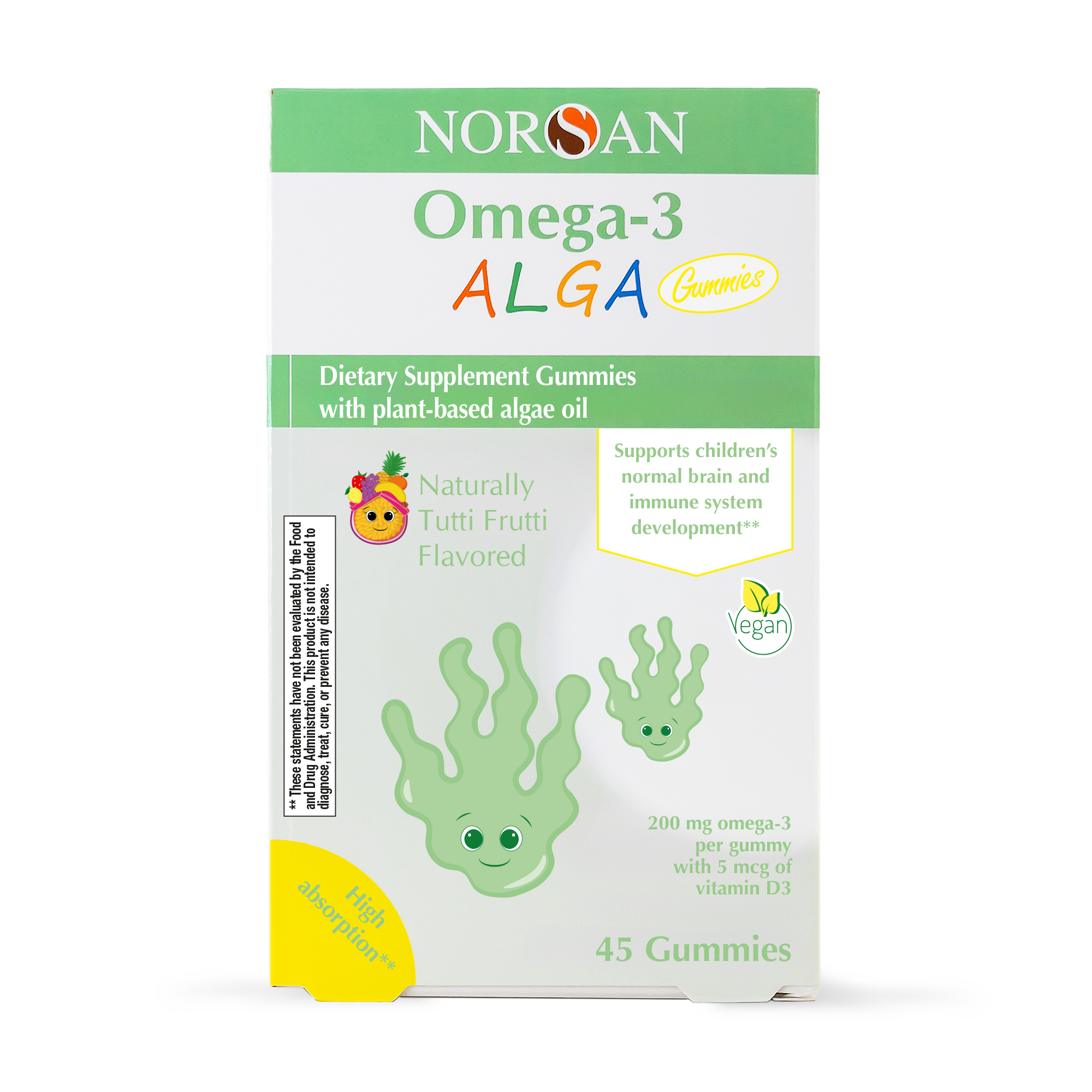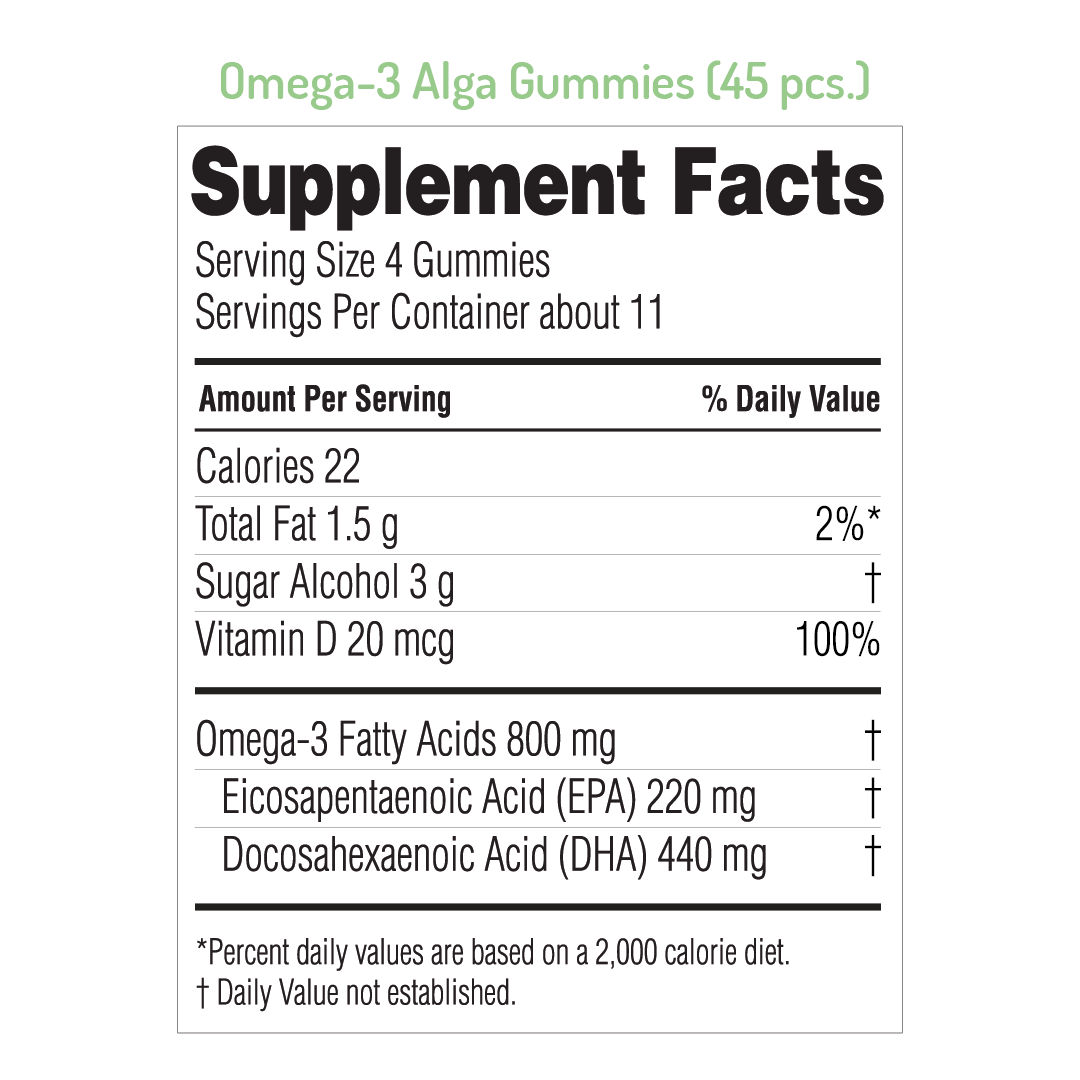

NORSAN Omega-3 Alga Gummies
For the good physical and mental development of your child*
- Vegan algae oil: rich in EPA and DHA
- 200 mg of omega-3 per Gummy
- With vegan Vitamin D
- Easy to take – chewable!
- Delicious Tutti-Frutti flavour
Pairs well with

NORSAN Omega-3 Alga Gummies
If you have any questions, you are always welcome to contact us. We'll get back to you as soon as possible, within 24 hours on weekdays.
-
Shipping Information
Use this text to answer questions in as much detail as possible for your customers.
-
Customer Support
Use this text to answer questions in as much detail as possible for your customers.
-
FAQ’s
Use this text to answer questions in as much detail as possible for your customers.
-
Contact Us
Use this text to answer questions in as much detail as possible for your customers.
200 mg omega-3 per gummy
Our Omega-3 ALGA Jellies are delicious, chewable drops with plant-based algae oil and a Tutti-Frutti flavor that can simply be snacked on. They are especially suited for children and contain no added sugar.
We've packed essential omega-3 fatty acids EPA and DHA into a tasty, convenient "gummy bear" form!
🌱 Essential Benefits & Usage
- Customizable Daily Dose: The recommended daily intake is based on body weight (e.g., 4 drops for a 30 kg person), which provides 800 mg of Omega-3.*
- Proven Health Support: Marine Omega-3 fatty acids are scientifically proven to have positive health effects on the heart, eyes, and brain.*
- Crucial for Early Development: During pregnancy and breastfeeding, maternal Omega-3 intake (or via follow-on formula) positively impacts the normal development of the infant's brain and eyesight.*
- Optimal Brain Food: The brain is made up of up to 60% fat, with DHA—one of the marine fatty acids—accounting for almost 20% of that. Omega-3 forms the foundation for good cognitive development, helping everything run smoothly. It's the ultimate Brain Food for your little ones!*
Ingredients
Xylitol, Water, Algae (Schizochytrium sp.) Oil, Sorbitol, Pectin, Trisodium Citrate Dihydrate, Malic Acid, Natural Flavour, Ascorbic Acid (Preservative), Lecithin, Calcium Citrate, Stevioside (Rebeudioside A), Sunflower Oil, Rosemary Extract (Preservative) Mixed Tocopherols (Preservative), Stevioside (Rebeudioside A), Ascorbyl palmitate (Preservative), Cholecalciferol, Beta-Carotene Color.
Storage
Opened and unopened products should be protected from direct sunlight, in a cool dry place, and kept at a stable room temperature. At Temperatures above 77°F/ 25°C, store in the fridge
Intake
The daily dosage varies depending on the age of the child. We recommend:
- 4-6 years: 2 gummies per day (400 mg omega-3)
- 6-12 years: 4 gummies per day (800 mg Omega-3)
Not suitable for children under 3 years of age.
We recommend that children under 3 years of age take our liquid omega-3 products. As a complementary food oil or via breast milk (supplementation via the mother). All our omega-3 oils can be taken by children of any age without any problems. Just make sure to adjust the dosage accordingly.*





